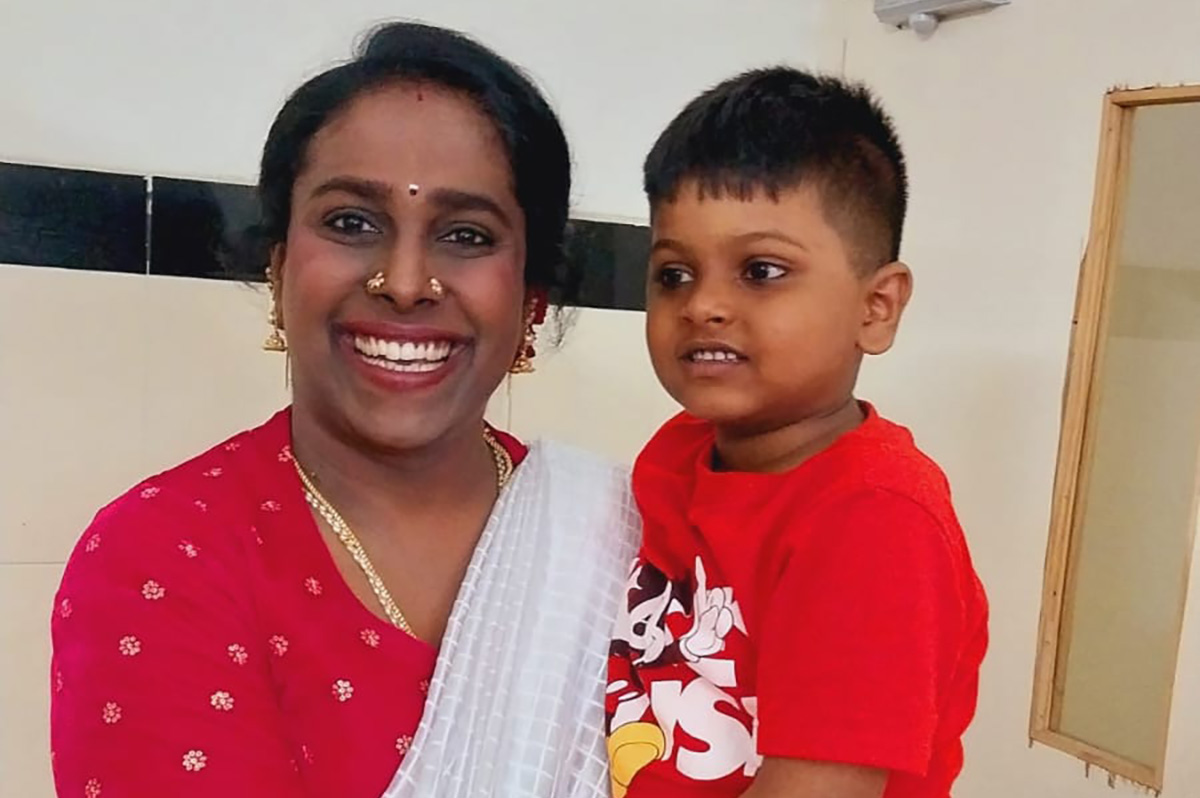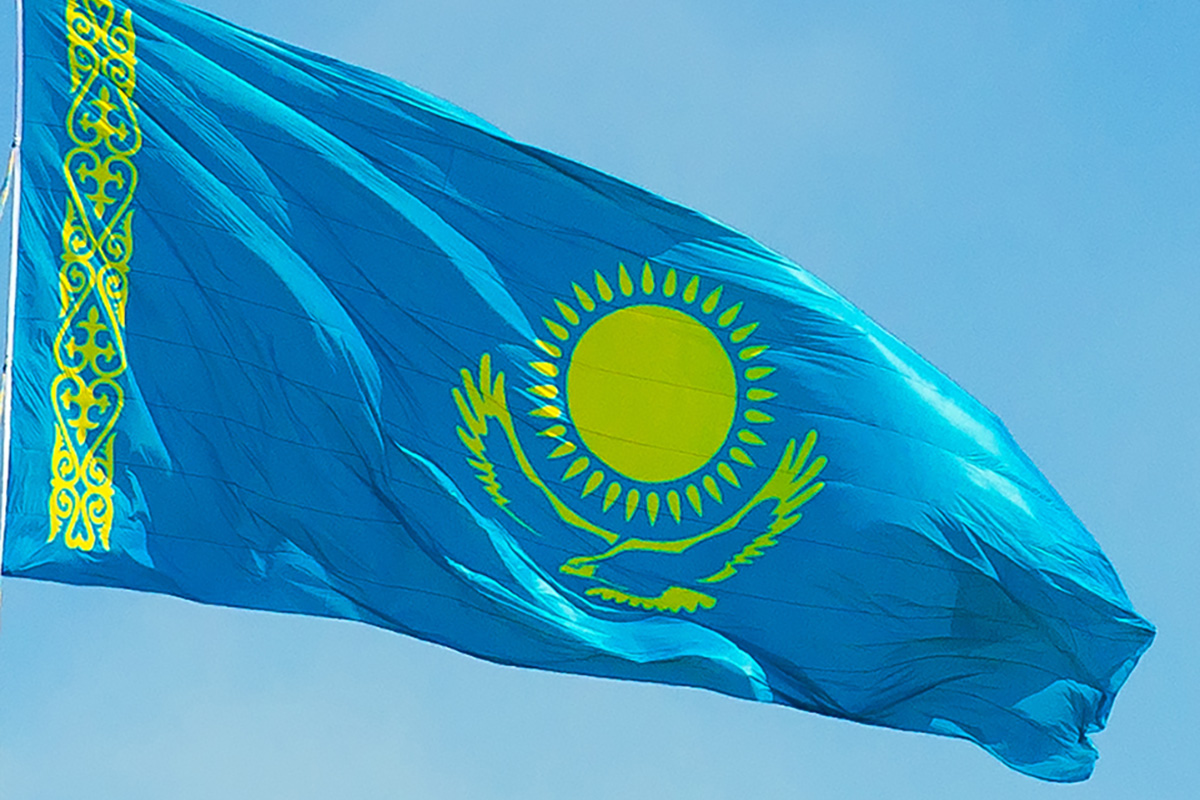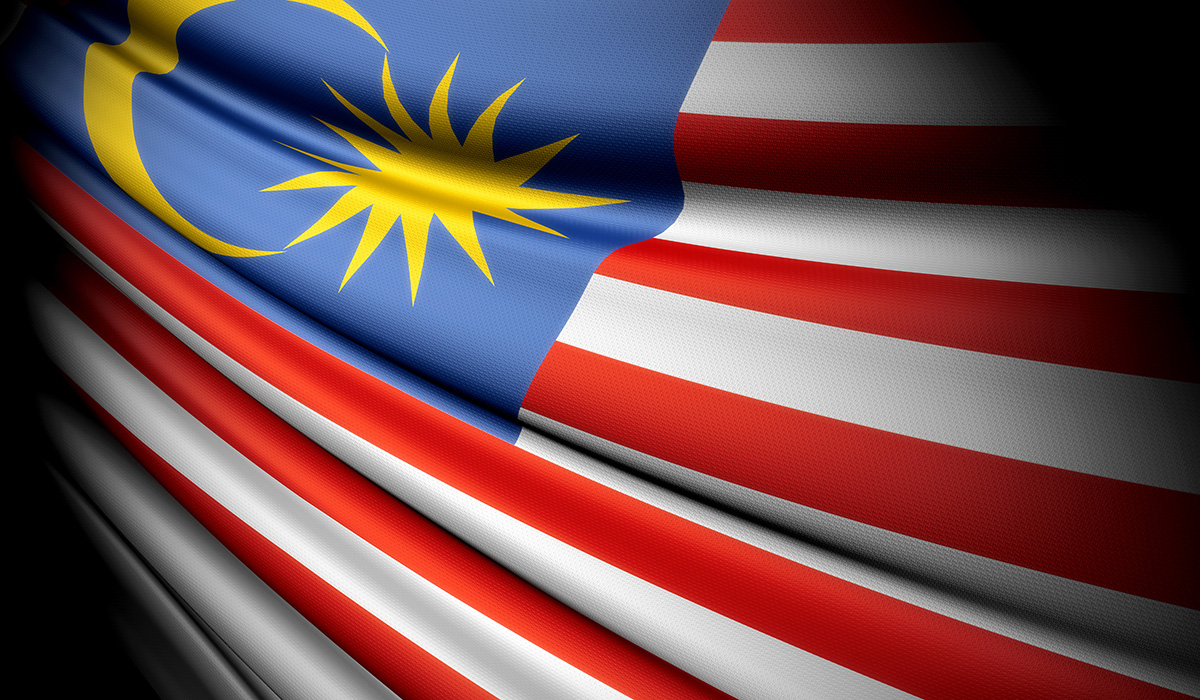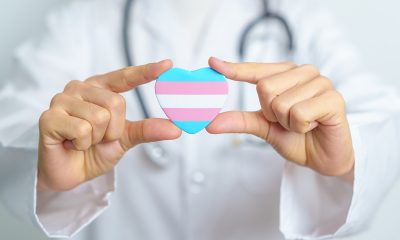Asia
Transgender activists celebrate legal advances in India, Pakistan
Akkai Padmashali on Nov. 12 obtained passport for child

Transgender activists in India and Pakistan are celebrating two legal advances in their respective countries.
Akkai Padmashali, an Indian trans activist, made history on Nov. 12 by obtaining a passport for her 5-year-old child, Avin, without including a father’s name. As a trans woman and single mother, she set a precedent not only for the trans community but for all women in the country raising children on their own.
Padmashali, who is one of India’s most prominent trans activists, in 2019 became the first trans woman in the country to officially adopt a child. A year earlier, she made history in Karnataka by becoming the first trans woman in the state to register her marriage with her husband, Vasudev V.
Padmashali expressed her joy to the media when she adopted Avin, stating she had always dreamed of becoming a mother.
“It has been my dream and desire,” said Padmashali in 2019. “Our families have accepted the baby. It’s heart-warming to see the little one playing on my mother’s lap. I just hope that he does not face any kind of discrimination and social stigma when he grows up.”
In 2019, the same year Avin was born, parliament passed the Transgender Persons (Protection of Rights) Act.
The law seeks to safeguard the rights of trans people and promote their welfare. It includes provisions for issuing identity certificates, protecting against discrimination in education, employment, healthcare, and other sectors, and establishing welfare programs. The law also addressed physical, sexual, verbal, emotional, and economic abuse through protections and rehabilitation programs, introduced complaint officers to handle grievances, and outlined penalties for offenses against trans people.
The Narendra Modi-led government on Dec. 23, 2016, amended the passport policy to accommodate single parents and others who may not wish to include a father’s name in the application. This move was part of broader efforts to streamline and liberalize the passport process in India. One significant change was the modification of the application form, allowing applicants to list either the mother’s name, father’s name, or legal guardian’s name, instead of requiring both parents’ names. The change sought to benefit single mothers, orphans, and children raised by legal guardians.
Padmashali during an interview with the Washington Blade emphasized this issue extends beyond the trans community.
“This is not a question of the community—maybe a single mother, a single parent, most of the women across the world,” she said.
“People are struggling with the identity crisis,” Padmashali added. “In a system of majoritarian, there are so many people who are in the process of questioning the notion of marriage, questions the notion of civil relationship or partnership. Especially in my case, born a male, transformed into a female, and challenged the notion of patriarchal institutions in that way. I claim myself as a woman and also adopting a child, getting the child every document from the government is a big challenge. Especially in the state of Karnataka, I did not find it challenging — very supportive officers, a very supportive government, and a very supportive environment.”
Padmashali told the Blade she was very happy with the process of obtaining a passport for her child, describing it as completely hassle-free.
“I think the passport authority of this country is very sensitive. The passport gives a certain amount of recognition, especially for the transgender community,” said Padmashali. “Many transgender women have also adopted children, but [are] struggling with lots of identity crises.”
“In my case, it was a completely different scenario, I got my passport as a female, and Avin’s also getting the passport without naming the father, I think it’s a national issue,” she added. “From the transgender person’s point of view, I am happy that my Supreme Court has recognized the community and the parliament has recognized the Transgender Protection Act. India is in process of progressing, I would say.”
Pakistan’s Sindh province could implement first-ever Transgender Education Policy
Authorities in in Pakistan’s Sindh province — the country’s third-largest by land and its second most populous — on Nov. 13 approved the first-ever Transgender Education Policy.
The policy includes a separate category for trans children on school and college admission forms, alongside existing male and female options.
Sindh Education Minister Syed Sardar Ali Shah chaired the meeting during which the Transgender Education Policy was approved. A press release says it will now go before the provincial Cabinet for final approval.
The press release notes the proposed policy seeks to eliminate discrimination by providing education for trans children, and introducing job quotas for trans people in the recruitment of teachers.
The Sindh government says trans activists and advocates helped develop the policy.
Shah highlighted the significant challenges faced by the trans community in accessing education, including prejudice, mistreatment, and exclusion. He noted that financial constraints and limited employment opportunities often make education unaffordable, while the fear of harassment in educational institutions further deters transgender individuals from pursuing it. Shah also emphasized that the policy aims to safeguard the identity, safety, and educational needs of trans people.
The press release notes the policy also includes training for teachers to understand the psychological and educational challenges that trans children face. It also aims to develop skills among trans people, and foster a harassment-free environment within educational institutions. The policy seeks to raise public awareness about the need to promote equal opportunities and rights for trans people.
Anusha Tahir Butt, chair of the Transgender Empowerment Organization, said the Transgender Education Policy’s initial approval as a significant step towards greater inclusion and equality for trans people.
“This policy acknowledges the challenges faced by transgender individuals in accessing education and employment, offering them a dedicated space in schools, colleges, and government jobs,” said Butt. “It’s a much-needed step in breaking down the societal barriers of discrimination, harassment, and exclusion that transgender people often face.”
“By including separate categories for transgender children on admission forms and reserving job quotas, Sindh is helping to create a more supportive and equitable environment,” she added. “The policy also focuses on teacher training, anti-harassment measures, and skill development programs, all of which contribute to empowering transgender individuals to lead independent, fulfilling lives. This is a powerful example of how policy can drive social change and encourage a more inclusive society in Pakistan. “
Butt noted societal stigma and prejudice against the LGBTQ community remain deeply entrenched in Pakistan, particularly in conservative areas.
“Discrimination and harassment in educational institutions could deter transgender and LGBTQ students from pursuing their education, despite the policy’s provisions for anti-harassment measures,” she said. “Furthermore, effective implementation could be challenged by limited resources, infrastructure, and political will, particularly in rural areas. Bureaucratic delays and gaps in broader legal protections for LGBTQ rights may also impede the progress of these initiatives.”

Kazakh President Kassym-Jomart Tokayev on Tuesday signed a bill that will ban so-called LGBTQ propaganda in the country.
Members of Kazakhstan’s lower house of parliament last month unanimously approved the measure that would ban “‘LGBT propaganda’ online or in the media” with “fines for violators and up to 10 days in jail for repeat offenders.” The Kazakh Senate on Dec. 18 approved the bill.
Kazakhstan is a predominantly Muslim former Soviet republic in Central Asia that borders Russia, Turkmenistan, Uzbekistan, Kyrgyzstan, and China. Russia, Georgia, and Hungary are among the other countries with anti-LGBTQ propaganda laws.
India
Few transgender people benefit from India’s low-income housing program
Pradhan Mantri Awas Yojana launched in 2015

The Indian government on Dec. 15 informed parliament that only one transgender person in Jammu and Kashmir has been recorded as a beneficiary under the Pradhan Mantri Awas Yojana since the housing program was launched a decade ago.
PMAY is a federal government program aimed at expanding access to affordable housing for low- and middle-income households, including through credit-linked subsidies. The parliamentary disclosure indicates that trans beneficiaries have been virtually absent from the program’s records in the union territory, despite official guidelines listing trans people as a priority category.
In a written reply to a question in the upper house of parliament, known as the Rajya Sabha, the Housing and Urban Affairs Ministry said Jammu and Kashmir recorded zero trans beneficiaries under the program in each financial year from 2020–2021 through 2025–2026, with the cumulative total since inception remaining at one.
The Indian government launched the program on June 25, 2015, and the Housing and Urban Affairs Ministry implemented it.
The parliamentary reply came in response to a question on whether trans people are being included under the housing scheme and what steps have been taken to address barriers to access. The ministry said both PMAY and its successor, PMAY 2.0, are demand-driven programs, with responsibility for identifying and selecting beneficiaries resting with state and regional governments.
The ministry said the program lists trans people as a priority group, alongside widows, single women, people with disabilities, senior citizens, and other socially disadvantaged categories. It added that actual implementation depends on housing proposals and beneficiary lists submitted by state and regional governments.
According to figures the Indian government cited, a total of 809 trans beneficiaries have been recorded under PMAY and its successor, PMAY 2.0, since the programs were launched, with the vast majority concentrated in a small number of states. The southern state of Tamil Nadu accounts for 222 beneficiaries, followed by Andhra Pradesh with 186, and Odisha with 101. By contrast, several other states and federally administered regions, including Jammu and Kashmir, have reported either negligible or no coverage. India is administratively divided into 28 states and eight federally governed territories.
According to India’s 2011 national Census, Jammu and Kashmir recorded 4,137 trans residents. The same census counted 487,803 trans people nationwide, providing the most recent official population baseline for the community in India.
The ministry also said it has not conducted a specific survey to assess barriers faced by trans communities in accessing the scheme’s benefits. Instead, it said lessons from earlier implementation phases informed the design of the second phase of the program, launched on Sept. 1, 2024, which aims to support an additional 10 million urban beneficiaries over the next five years.
The parliamentary reply reveals an even more severe gap in Ladakh, India’s northernmost federally governed territory bordering China and Pakistan-administered areas and considered strategically critical to national security.
Official records show that Ladakh has not reported a single trans beneficiary under the housing scheme, either in recent years or cumulatively since the program began, with zero coverage recorded across all financial years listed in the Annexure. By comparison, Ladakh’s trans population stands at six, according to a written submission made to the High Court of Jammu and Kashmir in 2024.
Despite trans people being listed as a priority group in the scheme’s guidelines, the federal government said that as of November 2025 it had sanctioned more than 12.2 million homes nationwide under both versions of the program, with over 9.6 million homes completed and delivered. At the same time, data from Jammu and Kashmir, Ladakh, and several other regions show little to no recorded housing uptake by trans beneficiaries.
Speaking with the Washington Blade, Meera Parida, a trans activist, former member of the National Council for Transgender Persons in India’s eastern zone, and a former state advisor under the housing and urban development department, said the 2011 Census does not reflect the full size of India’s trans population, noting that public recognition and self-identification were far more limited at the time. She pointed to later government data collection efforts, including the National Portal for Transgender Persons that the Social Justice and Empowerment Ministry launched in 2020, as evidence that official counts have expanded beyond what was captured in the last Census.
“I am surprised that around the country only over 800 people benefited from the scheme, because most of the transgender population is from socially backward classes,” said Parida. “So they do not have a house and no family. Five years have passed since the NALSA judgment and the Transgender Protection Act; even after all these, if only over 800 transgender persons got home, that is a sad situation.”
Parida said that Prime Minister Narendra Modi has publicly positioned trans people’s welfare as a priority, but argued that the issue requires greater attention at the administrative level. She said the prime minister’s office should issue clear directions to all relevant departments to ensure trans people receive housing support and that implementation moves more quickly.
“There is still widespread discrimination and stigma against the community. Many transgender people are afraid to speak openly, which is why this issue continues to persist,” Parida said. “If stigma and discrimination are not addressed seriously, the marginalized community will remain invisible and reluctant to come forward. In that situation, the government will also be limited in what it can do. State governments should work with activists and community organizations to build accurate data. The government has decided to resume the Census in 2026, but the enumerators who go door to door must be sensitized to engage respectfully with the transgender community. The government should also improve awareness of housing schemes, because many people simply do not know they exist. A single-window system is needed.”
Malaysia
Malaysian police raids spark renewed concern among LGBTQ activists
202 people arrested at men-only venues in Kuala Lumpur on Nov. 28

In the weeks since a Nov. 28 police raid on men-only venues in Kuala Lumpur, queer activists in Malaysia say they have stepped up efforts to coordinate legal assistance for people detained under state Shariah laws.
Justice for Sisters, Pelangi, and other groups have been providing legal referrals, court monitoring, and emergency support following the arrests, as advocates warn that enforcement targeting LGBTQ communities has intensified.
In Malaysia, a Muslim-majority but multi-ethnic and multi-faith country, consensual same-sex sexual conduct is criminalized under both civil and Islamic law. The federal penal code bans “carnal intercourse against the order of nature,” a provision that applies nationwide, while state-level Shariah laws governing Muslims prohibit same-sex relations and gender nonconformity, including cross-dressing. Together, the dual-track legal system allows authorities to pursue LGBTQ people under parallel civil and religious statutes.
According to Justice for Sisters, 202 people — including venue owners, staff, and customers — were arrested and detained overnight. The organization in a statement said detainees were repeatedly denied access to legal counsel and communication with family members, and that their identities and images were exposed publicly — actions it said led to humiliation and, in some cases, job losses.
According to testimonies collected by Justice for Sisters and several other NGOs, detainees reported multiple procedural violations during the legal process. In a document the group published, detainees said they were not informed of the charges against them, were denied access to legal counsel, and phone communication for hours, and, in the case of foreign nationals, were not given access to embassies or translators. The document also described interrogations that included intrusive questions about sexual practices and orientation, as well as detention conditions in which detainees were repeatedly ordered to sit, stand, and recline without explanation and transported in overcrowded vehicles, with 30 to 40 people placed in trucks designed for far fewer passengers.
Detainees also reported being subjected to degrading treatment while in custody.
Accounts said detainees were denied access to toilets for extended periods and instructed to urinate into bottles, which were later thrown at them. Some detainees said officers suggested using rubber bands to restrict urination. Detainees also said authorities kept them awake overnight and repeatedly ordered them to sit upright or monitor others to prevent them from sleeping.
“We call on the Malaysian Human Rights Commission (SUHAKAM) and the Ministry of Health (KKM) to immediately launch an independent and unbiased assessment and investigation into the actions of the agencies involved during the raid, detention, and subsequent procedures, after the court rejected the remand extension request on Nov. 29, 2025,” Justice for Sisters said in a statement. “This raid has had a serious impact on public health. Many individuals reported heightened mental distress, including suicidal thoughts and severe psychological stress, affecting their ability to carry out daily activities such as eating, working, sleeping, and accessing medical treatment. When safe-sex tools such as condoms or pre-exposure prophylaxis are used to imply criminal activity, it directly undermines progress in the country’s public health response.”
Justice for Sisters also said law enforcement officers must conduct investigations professionally and fairly, while upholding the presumption that detainees are innocent until proven guilty. The organization in a statement said police must carry out their duties in a manner that preserves public trust and confidence in the justice system.
Rights groups say enforcement actions against LGBTQ gatherings in Malaysia have not been limited to the capital.
In June 2025, police in the northeastern state of Kelantan raided a private rented property described by authorities as a “gay party,” arresting 20 men, according to state police statements.
According to Reuters, Malaysian law enforcement authorities said they would review their procedures following the November raid. The report cited Kuala Lumpur Police Chief Fadil Marsus as saying that 171 Malaysian nationals were released from custody after authorities found no evidence to prosecute them.
The Washington Blade reached out to the Royal Malaysia Police for comment, but did not receive an immediate response.
“We do not want a situation where raids and arrests are carried out but, in the end, the evidence is inadmissible,” Marsus said, according to Reuters.
As of Dec. 1, all but one of the 37 foreign nationals detained in the raid had been released, with the remaining person held on an immigration-related matter, according to Reuters. Authorities have not publicly disclosed whether they remain in custody.
-

 U.S. Supreme Court4 days ago
U.S. Supreme Court4 days agoSupreme Court hears arguments in two critical cases on trans sports bans
-

 Virginia5 days ago
Virginia5 days agoWoman arrested for anti-gay assault at Alexandria supermarket
-

 Commentary4 days ago
Commentary4 days agoHonoring 50 queer, trans women with inaugural ‘Carrying Change’ awards
-

 District of Columbia4 days ago
District of Columbia4 days agoRuby Corado sentenced to 33 months in prison


















